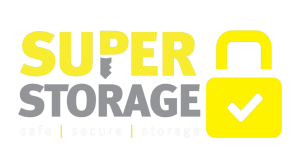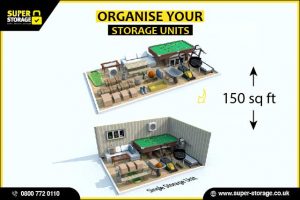If you’re storing your documents in a self-storage facility, but don’t know what is the proper way to store documents in self storage, it might be time to learn. There are many things that can go wrong if you don’t know what you’re doing. Properly storing your important files will ensure that they are protected from any damage because anything can happen to important documents such as fire, theft and natural disasters.

Why to Use Storage Units for Documents?
- Documents will be stored in safe conditions, which are protected from fire, water, mold and other factors like damage and theft.
- Storing documents in a storage unit means that you can save them for a long time without worrying about their condition.
- Save time by storing documents in one place instead of moving them around every day.
- If you have a lot of documents to store, then it is worth considering getting a storage unit for documents.
What is the Best Ways to Store Documents in Self Storage
If you need to store documents and records, a storage unit is the perfect solution. Here are the proper way to store documents in storage unit:
1. Always use packaging material
Packaging materials are very important in many cases. In this case, they can be used as the safest way to store documents in a storage unit. If you have some old boxes lying around your home and office, then you should use them to store your documents. You can even recycle these boxes and make them into an effective storage unit for your business documents. In addition, if you want something more secure, then you can buy some custom made containers for safe storage of your business documents. These containers will be made from high quality material so that they won’t get damaged easily when being moved around or stored in the storage unit.
2. Use castles
Castles are also used as a good option for storing documents in a storage unit because they have sturdy construction and come with locking mechanisms that make it difficult for anyone to open them without permission from their owner or supervisor. This makes castles perfect for storing important papers like contracts, agreements etc… They can also be used by businesses who want to keep sensitive information safe from unauthorized access by employees or customers.”
3. Use dividers between each file or book
If you have a lot of files or books, consider using boxes with dividers between each file and book so that each is separated from its neighbors by thin sheets of cardboard or cardboard dividers so that they won’t get mixed up together when stacking them together in your storage unit!
4. Use a document box
If you need to store documents, the best way is to use a document box. This will help keep your documents safe, dry and free from dust and insects. It’s also easy to find when you need them.
5. Store files in an air-conditioned room
Storing documents in an air-conditioned room will ensure that they stay dry and free from pests and insects. The temperature inside the room should be around 70 degrees Fahrenheit (21 Celsius). The humidity level must also be kept low at 40 percent or less. You can also purchase freezer bags if your documents are highly sensitive or valuable.
6. Keep them in an old file cabinet
If you have a lot of paperwork that needs to be stored safely, it’s best to store them in an old file cabinet rather than using a plastic container or paper bag because these items may not be able to withstand moisture for long periods of time.
7. Keep them dry and clean
If you are storing documents, make sure they are protected from any dust, dirt or moisture that could cause damage to their appearance, texture or arrangement of the document pages themselves (for example if papers are kept wet for long periods of time).
8. Sort and thin your documents
If you are storing your documents in a file cabinet or on a shelf, it is important to sort and thin your documents before storing them. This helps to keep them from becoming tangled and prevents them from getting damaged by other items.
Sort by category such as accounting, legal, or personnel files, then place each type of file in its own folder on top of another stack of folders or into a box with dividers. These steps will ensure that the most important files are in front and that they are not mixed with less-important ones.
Thin out your papers by placing the most frequently used papers at the top of the stack and those that are least used at the bottom. They can either be put in separate stacks or in one large pile, depending on how much room you have available for filing cabinets or boxes.
9. Label your boxes
Have you ever found yourself in a situation where you have to find documents and records that you need to look for, but the boxes are all over the place with no labels? I know how frustrating it can be when you’re trying to find a particular document that was in one of those boxes.
There are some simple ways you can label your boxes so that it’s easier for you and anyone else who is helping you with this project.
Label each box with the contents. This will help you find what you’re looking for quickly, and it will also make it easier when someone else needs to get access to your files. Label each box with a label or tape so that there is no confusion as to what is inside each one.
10. Choose the right self storage unit for your documents
Storage units are an important part of keeping your documents safe and secure. They are also a great way to store files that you need to access regularly, such as tax records or bank statements. If you have a lot of files that need to be stored, you may want to consider renting an entire storage unit instead of buying one.
There are many different types of storage units available today. Some are designed for small businesses or individuals who want to use them as a home office or personal files storage space. Others are designed for larger companies that need more space for their corporate records and other important documents. Whatever type of commercial storage unit you choose, make sure it is one that offers adequate security for your valuable documents.
Summing Up:
These all-purpose storage units are designed to help keep your possessions safe and protected when you have to store them away from home, office or retail location. They come in a wide range of different sizes and configurations to fit your needs, including climate controlled options. If you plan on storing documents, make sure you use plastic document envelopes or boxes. While some recommend using cardboard or paper, these can be more prone to pest destruction.




